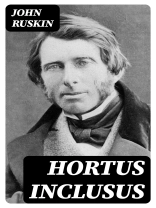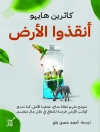In ‘Hortus Inclusus, ‘ John Ruskin blends poetic prose with artful observation, constructing a vivid tapestry that reflects his deep affinity for nature and the human spirit. This work serves as a contemplative exploration of a garden, symbolizing both a physical space and a metaphor for inner life. Influenced by Romantic ideals, Ruskin’s lyrical style invites readers into a world rich with sensory detail and philosophical musings, punctuated by his keen aesthetic sensibilities. The book’s narrative unfolds in a manner that intertwines art, morality, and personal reflection, creating a resonant dialogue between the natural environment and cultural commentary. John Ruskin (1819-1900), a prominent Victorian art critic, social thinker, and philanthropist, was deeply influenced by his experiences in the beautiful landscapes of England, as well as his studies of art and architecture. His dedication to social reform and appreciation of beauty is evident throughout his life’s work, providing a profound context for ‘Hortus Inclusus.’ Ruskin’s belief in the moral imperative of beauty is intricately woven into the fabric of this book, revealing his personal struggles, philosophical inquiries, and vision of a reconciled relationship between man and nature. This exquisite work is highly recommended for those intrigued by the intersections of art, nature, and philosophy. Ruskin’s explorations will resonate with readers seeking deeper insights into the human experience and the ethereal beauty surrounding us. It is a timeless invitation to connect with the natural world and reflect upon the values that shape our existence.
Sobre el autor
John Ruskin (1819-1900) was a prominent Victorian-era English art critic, social thinker, poet, and artist. His broad range of talents and interests spanned across various domains, but he is particularly remembered for his writings on art, architecture, and social issues. Ruskin’s literary style is distinguished by its eloquence, passion, and concern for morality and social justice. His works are often characterized by their detailed observation and the synthesis of beauty and ethics. ‘Hortus Inclusus’ manifests Ruskin’s keen observation and love for the natural world, exploring themes of nature, art, and society within a collection of his correspondence that illuminates his personal reflections and theories. This book, alongside other notable works such as ‘Modern Painters’ (1843), ‘The Stones of Venice’ (1851-1853), and ‘Unto This Last’ (1860), showcases Ruskin’s profound influence on Victorian taste and opinion. Ruskin was not only an author but also an educator, founding the Ruskin School of Drawing at Oxford University, demonstrating his commitment to the arts and education. His legacy includes influencing the Arts and Crafts Movement and contributing significantly to social and economic theory.












